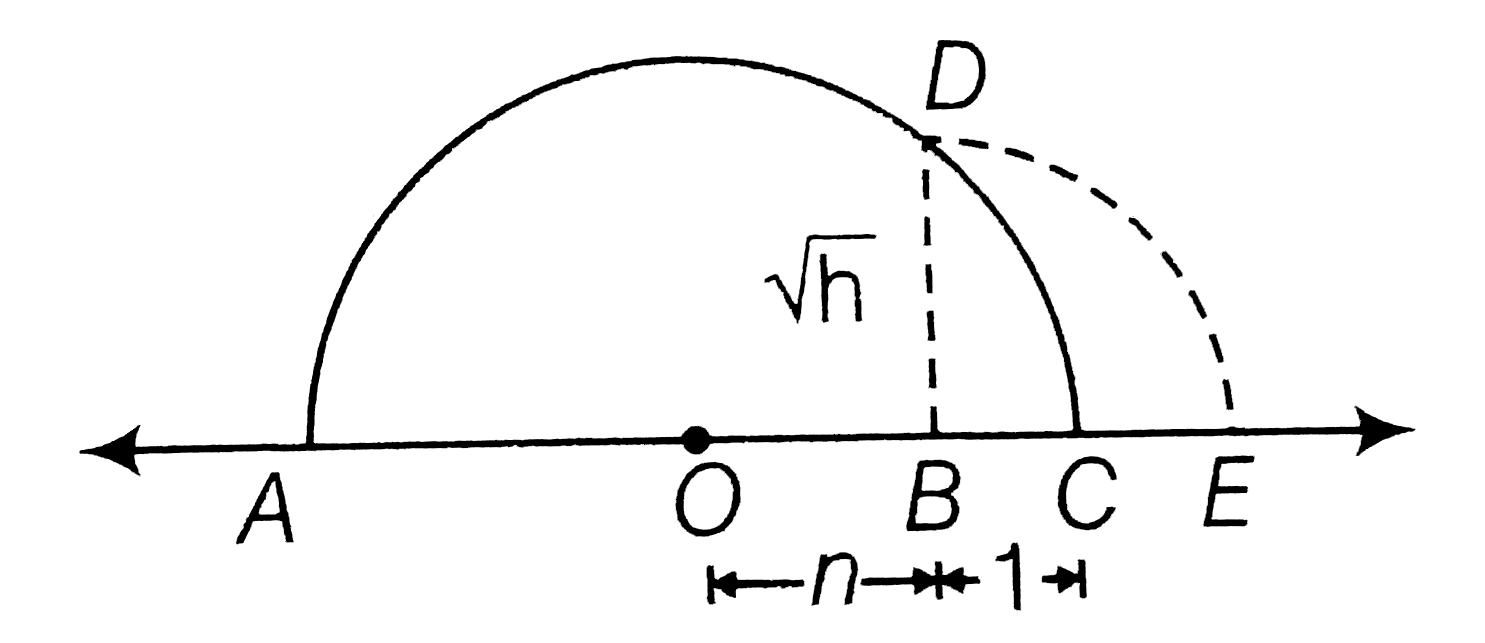BY Remainder theorem , find the remainder when p(x) is divided by g(x)
(i) p(x) =x3−2x2−4x−1,g(x)=x+1
(ii) p(x)=x3−3x2+4x+50,g(x)=x−3
(i) given p(x)=x3−2x2−4x−1andg(x)=x+1
Here , zero of g(x) is -1
when we divide p(x) g(x) using remaining theorem , we get the remainder p-13).
∴p−(−1)=(−1)3−2(−1)2−4(−1)−1
=−1−2+4−1
=4−4=0
Hence , remainder is 0.
(ii) GIven −p(x)=x3−3x+4x+50andg(x)=x−3
Here ,zero pf g(x) is 3.
when we divide p(x)by g(x) using remainder theoem , we get the remainderp(3).
∴p(3)=(3)3−3(3)2+4(3)+50
=27−27+12+50=62
Hence , remainder is 62.
(iii) Given p(x)=4x3−12x2+14x−3and=2x−1
here , zero of g(x) is 12
when we divide p(x) by g(x) using reminder theorem, we get the remainder p(12)
∴p(12)=4(12)3−12(12)2+14(12)−3=4×18−12×14+14×12−3
=12−3+7−3=12+1=1+22=32
Hence , remainder is 32 .
(iv) Given ,p(x)=x3−6x2+2x−4andg(x)=1−32x.
Here , zero of g(x) is 23.
when we divide p(x) by g(x) using remainder theorem , we get the reminder p(23) .
∴=827−6×49=2×23−4=827−249+43−4
=8−72+36−10827=−13627
hence remainder is −13627
Topper's Solved these Questions
Similar Questions
Represent geometically the following numbers on the number line
√4.5

View SolutionThree angles of a quadrilateral are 75∘,90∘and75∘, then the fourth angle is
View SolutionFind the remainder when P(x)-:G(x)(i)P(x)=2x^(4)-6x^(3)+2x^(2)-x+2;G(x)=(x+2) (ii) P(x)=4x^(3)+4x^(2)-x-1;G(x)=(2x+1)
View SolutionFind the remainder when p(x)=x^(3)-5x^(2)+4x+5 is divided by g(x)=3x-1
View SolutionUsing the remainder theorem , find the remainder , when p (x) is divided by g (x) , where
p(x)=2x3+3x2−11x−3,g(x)=(x+12).
View SolutionBy remainder theorem, find the remainder when, p(x) is divided by g(x) where,
p(x)=x3−2x2−4x−1,g(x)=x+1
View SolutionBy remainder theorem, find the remainder when, p(x) is divided by g(x) where,
p(x)=4x3−12x2+14x−3,g(x)=2x−1
View SolutionBy remainder theorem, find the remainder when, p(x) is divided by g(x) where,
p(x)=x3−3x2+4x+50,g(x)=x−3
View SolutionFind the remainder when p(x)=x3−2x2−4x−1 is divided by g(x)=x+1.
View Solutionமீதித் தேற்றத்தைப் பயன்படுத்தி, p(x) ஐ g(x) ஆல் வகுக்கக் கிடைக்கும் மீதியைக் காண்க. p(x)=x3−2x2−4x−1,g(x)=x+1
View Solutionமீதித் தேற்றத்தைப் பயன்படுத்தி, p(x) ஐ g(x) ஆல் வகுக்கக் கிடைக்கும் மீதியைக் காண்க. p(x)=4x3−12x2+14x−3,g(x)=2x−1
View Solutionமீதித் தேற்றத்தைப் பயன்படுத்தி, p(x) ஐ g(x) ஆல் வகுக்கக் கிடைக்கும் மீதியைக் காண்க. p(x)=x3−3x2+4x+50,g(x)=x−3
View SolutionBy remainder theorem , find the remainder when p(x) is divided by g(x) where ,
(i) p(x)=x3−2x2−4x−1,g(x)=x+1
(ii) p(x)=4x3−12x2+14x−3,g(x)=2x−1
(iii) p(x)=x3−3x2+4x+50,g(x)=x−3
View SolutionBY Remainder theorem , find the remainder when p(x) is divided by g(x) (i) p(x) =x3−2x2−4x−1,g(x)=x+1 (ii) p(x)=x3−3x2+4x+50,g(x)=x−3
View SolutionFind the remainder when P(x)÷G(x)
(i)P(x)=2x4−6x3+2x2−x+2;G(x)=(x+2)
(ii) P(x)=4x3+4x2−x−1;G(x)=(2x+1)
View Solution